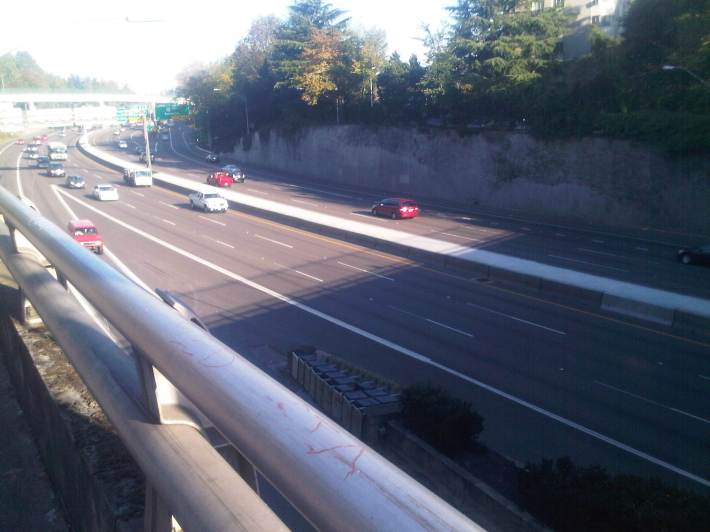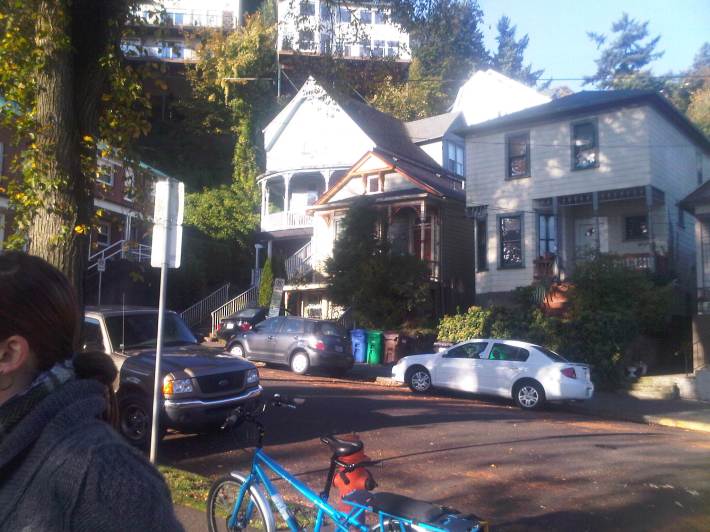Rail~volution is underway in Portland, Oregon, bringing together more than 1,000 city planners, engineers, transit advocates, bike policy experts, and elected officials to strategize about making cities and towns better for transit, walking, and biking.
Monday started with 15 different workshops that took place around the city, including one highlighting Portland’s “Lost Freeways” – the roads that were never built, and one that was actually torn out. These battles happened decades ago, but in many cities, highway fights continue to this day, and in some, teardowns are looking more and more possible. (Take note, readers in New Orleans, St. Louis, Seattle, New York, and New Haven.)
Traveling around on bikes and on foot, two groups visited some notable sites in Portland’s battles against freeways. First, we saw some battlegrounds where the anti-freeway movement lost.
South Park Blocks and I-405

In 1943, Portland invited New York's master freeway planner, Robert Moses, to come to town. After a month of study, he came out with an 86-page document mapping out the “future of Portland”: 14 freeways and a tangle of limited-access parkways to re-make the city. Portland would have become what longtime local transit official Dick Feeney calls “a wonderful place to drive a car through," where "the neighborhoods would have all vanished."
Today, one of those highways, I-405, runs right through downtown. Tour guide Sarah Mirk, author of Oregon history comic books (including one about dead highways), took us to a little grassy patch just across the I-405 overpass from the South Park Blocks, built in the mid-1960s.
This little marooned park over here is an orphan of when they built the I-405 freeway right here. The South Park Blocks are something people love in Portland; it’s a historic part of our city. And when they built I-405 through, they not only tore out two solid blocks of dense housing here in this neighborhood – which was really diverse, low-income housing – they also tore out two blocks of the South Park Blocks. People were really upset about that. And as a concession to people who were really upset about tearing out the park blocks, they said, we’ll do a ‘park-like treatment’ on the overpass coming over here. So you can see the overgrown bramble, and the cement, and the weeds. This is the ‘park-like treatment’ given to the South Park Blocks.
The freeway cut the neighborhood off from their school and library on the other side, becoming a “wall” between the residents and the services they used. Developers put in a bike-ped trail along the freeway as a concession.
That trail – unsigned, virtually unknown and unused – is known informally as the Ho Chi Minh trail. “Not to honor the Vietnamese leader,” says Mirk, “but because it was so dangerous and there were lots of muggings along here at night. There’s zero lighting, the neighbors have put up barbed wire, and it’s out of sight, out of sound. No one can hear you scream over the sound of the freeway.”
In my next post, I’ll get to the good stuff: the freeway plans that never saw the light of day, and one that came tumbling down.






